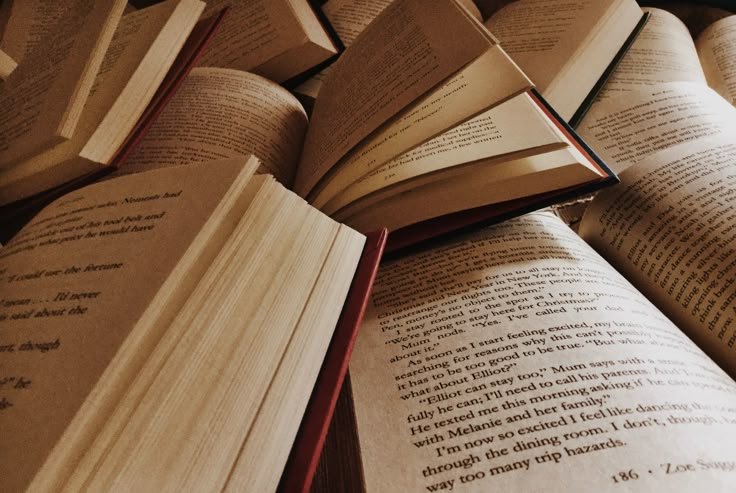Bestselling Fiction Books of 2025

The year 2025 delivered a spectacular lineup of fiction books that readers couldn’t put down. Authors across genres brought unforgettable characters, gripping narratives, and emotional depth that connected with millions. From speculative sci-fi worlds to poignant contemporary dramas, these bestselling fiction books defined what it means to tell a powerful story in today’s fast-changing world.
Here’s a deep dive into the bestselling fiction books of 2025 that dominated charts, book clubs, and social conversations.
1. The Silent Hour by Celeste Adler
Celeste Adler returned this year with The Silent Hour, and she didn’t disappoint. In this haunting psychological thriller, Adler tells the story of Mara, a deaf forensic psychologist, who decodes a chilling murder case through silence and intuition. Readers raved about Adler’s tight prose and bold, sensory-driven storytelling.
Adler avoided common tropes and focused on raw human instincts. Critics praised the book for building tension without relying on gore or exaggerated violence. The book topped charts in North America, Europe, and Asia, with over 5 million copies sold within four months.
2. Beneath the Red Sky by Haruto Akiyama
Japanese author Haruto Akiyama made a global splash with his translated novel Beneath the Red Sky. Set in a post-war Kyoto, the book follows two childhood friends who reunite after decades of silence, only to uncover a forgotten betrayal.
Akiyama weaved delicate emotion into every chapter. His poetic style and powerful dialogues struck a chord with readers around the world. Bookstores reported sold-out stocks within days of its international release.
Readers loved the complex characters and historical layers. Akiyama didn’t just tell a story; he built a world readers felt deeply connected to.
3. Ironwood Grove by Tasha Monroe
Tasha Monroe introduced a fantasy saga that felt both ancient and fresh. In Ironwood Grove, she took readers into a forest that breathes, thinks, and chooses its heroes. The protagonist, a reluctant herbalist named Naera, must unlock secrets of the grove to save her cursed village.
Monroe didn’t follow the traditional fantasy path. She created folklore that felt real and original. Every page carried mystery, wisdom, and the magic of storytelling at its purest.
Young adults and adults alike embraced the novel. Fan art, cosplay, and discussion forums flooded the internet within weeks of publication.
4. A Life Named After Stars by Samira El-Amin
Samira El-Amin delivered a masterpiece in literary fiction with A Life Named After Stars. The novel follows Leila, a Palestinian-American astronomer who searches for answers in the sky while grappling with grief, identity, and love on Earth.
El-Amin wrote with brutal honesty and lyrical grace. She balanced political themes with deeply personal narratives. The book resonated with readers navigating cultural dualities and emotional loss.
Educators included the book in university reading lists. Reviewers called it “a milestone for diaspora literature.” El-Amin’s novel soared on bestseller lists in more than 15 countries.
5. The Memory Thief’s Daughter by Julian Hart
Julian Hart crafted a sci-fi mystery that thrilled readers from beginning to end. In The Memory Thief’s Daughter, a woman wakes up each morning with altered memories, only to discover someone is rewriting her past through illegal neural implants.
Hart blended technology, ethics, and suspense without slowing down the pace. He didn’t overcomplicate the science but kept the focus on emotional stakes and psychological unraveling.
Readers compared the book to classics like The Matrix and Inception. Tech reviewers and book influencers alike recommended it for its originality and smart storytelling.
6. Where the Fog Lingers by Eliora James
Eliora James tackled trauma, healing, and family dynamics in her stunning contemporary fiction novel Where the Fog Lingers. The story centers on three estranged siblings forced to spend a summer in their childhood home after their mother’s sudden passing.
James wrote with empathy and raw realism. She created characters with flaws, fears, and fierce love. Every chapter unfolded like a quiet conversation that revealed something profound.
Book clubs embraced the novel for its themes of reconciliation, grief, and rediscovery. The film adaptation rights were sold even before the book reached its third printing.
7. The House That Forgot Us by Diego Marquez
In this gothic magical realism tale, Diego Marquez blurred the lines between time, memory, and reality. The House That Forgot Us centers on a family trapped inside a mansion where each room remembers their secrets—and punishes their lies.
Marquez didn’t just write a haunted house story. He delivered a layered, symbolic narrative about generational trauma and emotional inheritance. The book combined Latin American folklore with stunning visual language.
Critics called the book “a literary puzzle box.” BookTok and Bookstagram created waves of content, making it one of the most discussed titles of 2025.
8. All the Days We Danced by Michaela Finn
Michaela Finn wrote one of the most heartwarming love stories of the year in All the Days We Danced. Set across two timelines—1978 and 2025—it follows two women whose teenage romance ended under pressure, only to reconnect decades later.
Finn captured tender moments with elegance. She didn’t rely on clichés but showed love’s resilience over time. Readers praised the book for handling LGBTQ+ themes with grace and authenticity.
Independent bookstores across Europe championed the novel. Reviewers celebrated Finn for proving that love, in any era, can bloom again.
9. City of Wires by Kayden Voss
Techno-noir meets cyberpunk in Kayden Voss’s electric debut City of Wires. The book introduces a future where citizens store consciousness in shared networks, and crime no longer targets bodies—but minds.
Voss injected adrenaline into every scene. He built a dystopia with chilling logic and thrilling rebellion. His characters questioned the system, morality, and identity at every turn.
Gamers, tech enthusiasts, and thriller fans flocked to the book. Film studios entered bidding wars for adaptation rights just weeks after its launch.
10. The Woman Who Painted the Moon by Leena Banerjee
Leena Banerjee brought poetry to prose in The Woman Who Painted the Moon, a historical fiction novel set in colonial Bengal. It follows Indira, a secret painter whose forbidden art tells truths the empire wishes to erase.
Banerjee didn’t hold back. She wrote with fire and elegance, exposing colonial wounds while celebrating feminine creativity. Her narrative weaved resistance, art, and love into a powerful tapestry.
The book sparked academic discussions, art exhibitions, and translated editions across Asia and Europe. Critics hailed it as a modern classic.
Conclusion: A Year of Bold Voices and Timeless Stories
Fiction in 2025 proved that storytelling still holds the power to shake us, heal us, and make us dream bigger. These authors didn’t just write books—they created experiences. Their words challenged ideas, built new worlds, and sparked important conversations.
Readers showed up. They bought these books. They discussed them in book clubs, debated them online, and shared them with loved ones. In a world saturated with screens and noise, fiction still reminded people of something sacred: the human connection.
And in every bookstore window, these stories stood tall—proof that good writing never goes out of style.













